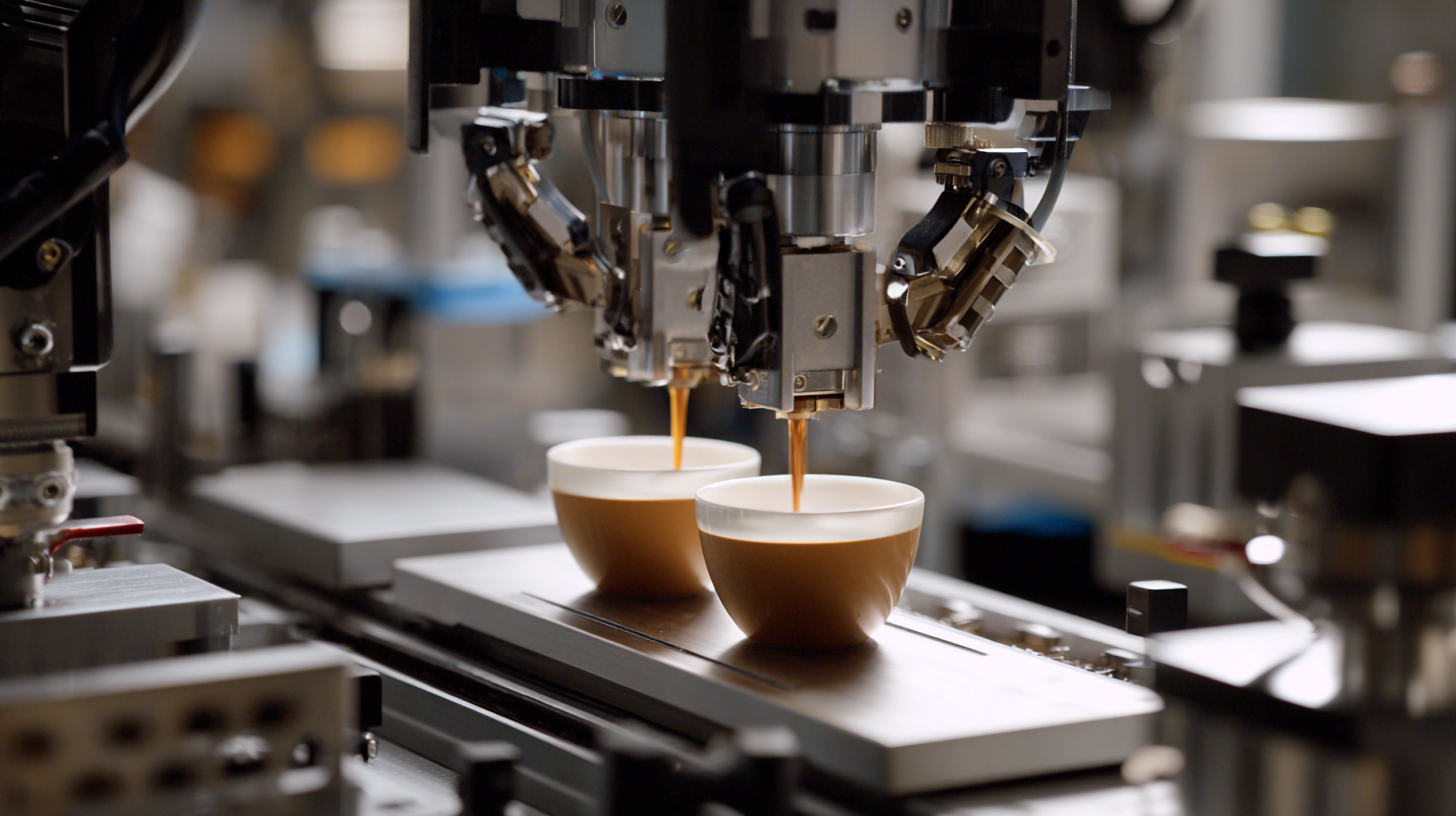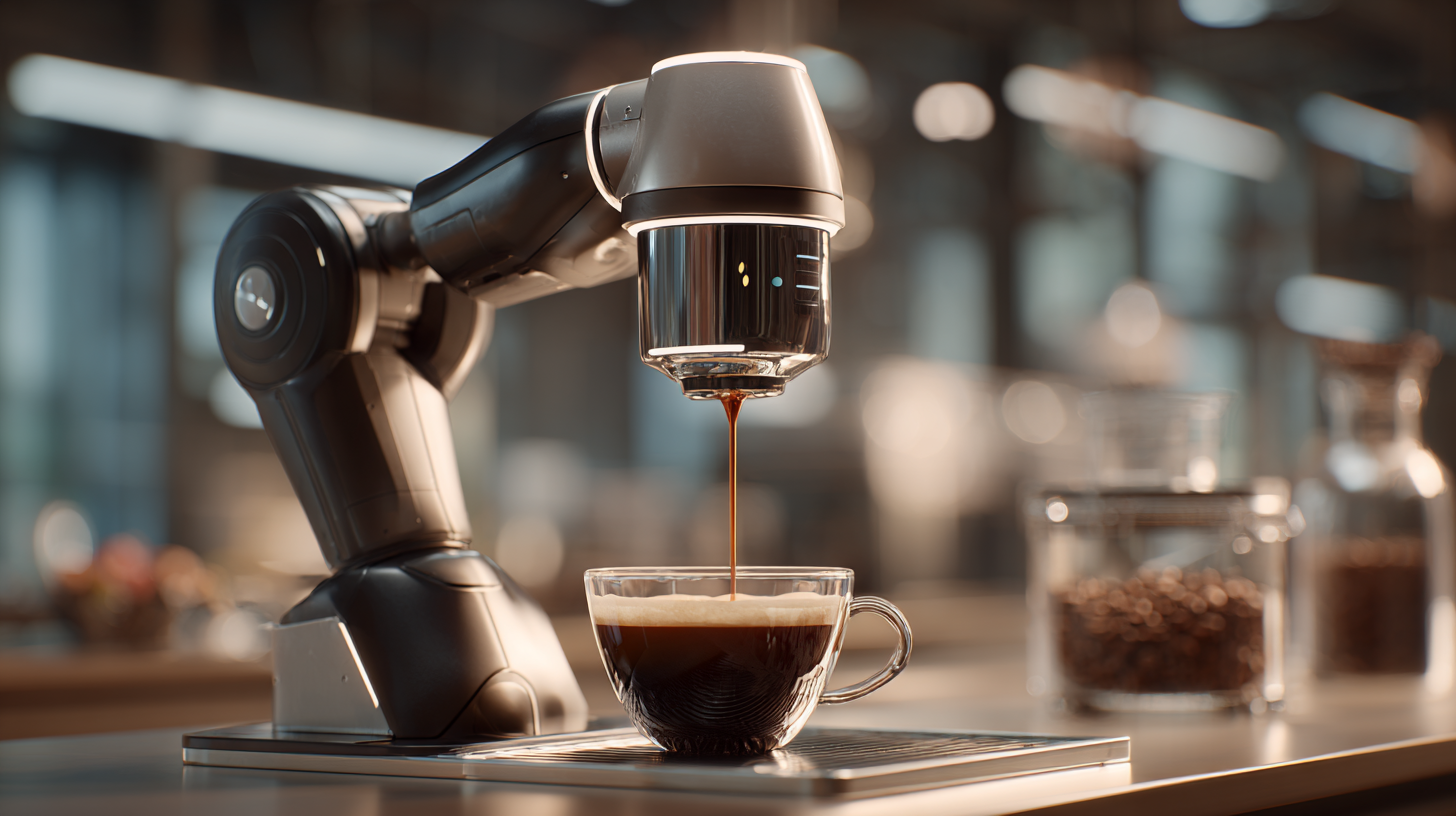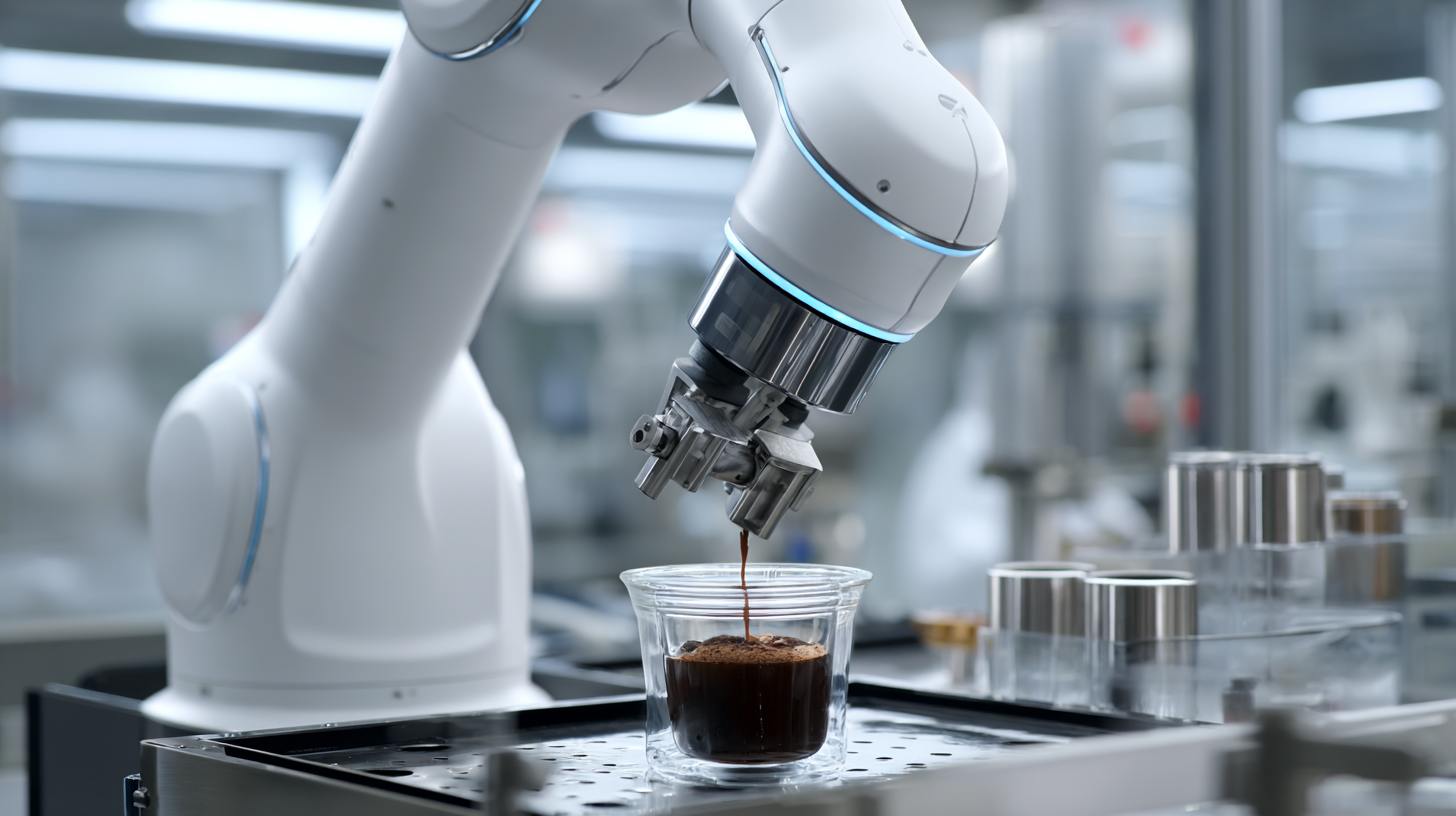Exploring the Rise of Coffee Robots: How Automation Is Brewing a New Era in Coffee Production
In recent years, the coffee production industry has witnessed a remarkable transformation fueled by advancements in automation technology. The rise of "Coffee Robots" heralds a new era where robotic systems are not only streamlining processes but also enhancing the overall quality of coffee. According to Dr. Emily Torres, a leading expert in agricultural automation, "The integration of Coffee Robots into the coffee supply chain is revolutionizing how we approach cultivation, harvesting, and brewing, ensuring consistency and efficiency like never before."
As these sophisticated machines take on tasks previously handled by human labor, they are capable of operating 24/7, which significantly increases productivity while minimizing labor costs. Furthermore, Coffee Robots are equipped with precision technology that ensures the careful handling of coffee beans, preserving their unique flavors and aromas during the production process. This shift towards automation not only caters to the growing global demand for coffee but also positions the industry to tackle labor shortages and rising production costs.
The implications of this automation extend beyond just operational efficiencies; they also raise important questions about the future role of human workers, sustainability, and the overall impact on coffee culture. As we delve deeper into the emergence of Coffee Robots, it becomes clear that this innovative trend is reshaping the landscape of coffee production, setting the stage for a new chapter in how we experience one of the world's favorite beverages.

The Shift Towards Automation in Coffee Production
The shift towards automation in coffee production represents a significant transformation in the industry, driven by advances in technology and the demand for efficiency. Coffee farmers and producers are increasingly turning to robotic systems and automated processes to streamline operations, reduce labor costs, and improve the quality of their products. These innovations allow for precise control over various stages of production, from planting and harvesting to roasting and packaging, thus enhancing overall productivity.
Automation not only addresses the challenges of labor shortages but also responds to the growing consumer expectation for consistency and quality. Automated systems can monitor environmental conditions, optimize resource usage, and ensure that coffee beans are harvested at the peak of ripeness. As machines take on more roles traditionally handled by human workers, the coffee industry is entering a new era where technology plays a crucial role in meeting both supply and demand while maintaining sustainable practices. The future of coffee production is undoubtedly more intricate and efficient, with automation poised to redefine the landscape.

Key Technologies Driving Coffee Robotics Innovations
The integration of advanced technologies into coffee production is reshaping the landscape of the industry, with robotics at the forefront of this transformation. Key innovations driving coffee robotics include automated brewing systems, precision agriculture tools, and AI-driven quality control mechanisms. These technologies streamline brewing processes, ensuring consistency and enhancing the flavor profile of the final product.  Automated brewing machines are capable of precisely controlling temperature and extraction times, allowing coffee producers to achieve optimal taste with minimal human intervention.
Automated brewing machines are capable of precisely controlling temperature and extraction times, allowing coffee producers to achieve optimal taste with minimal human intervention.
Moreover, robotics in coffee production extends beyond brewing to cultivation and harvesting. Precision agriculture technologies utilize drones and sensors to monitor crop health, soil conditions, and moisture levels. This data-driven approach enables farmers to implement targeted interventions that maximize yield and minimize waste. Additionally, robotic harvesters equipped with sophisticated vision systems can identify ripe coffee cherries, significantly reducing labor costs and increasing efficiency.
Together, these technologies herald a new era of coffee production that prioritizes sustainability and productivity, setting the stage for a more automated future in the beloved coffee industry.
Benefits of Coffee Robots: Efficiency and Quality Improvement
The rise of coffee robots is reshaping the landscape of coffee production by introducing significant efficiency and quality improvements. Automation in the coffee industry allows for precision in processes such as brewing, grinding, and packaging, ensuring that each cup maintains consistent quality. With robotic systems managing repetitive tasks, human workers can focus on more complex aspects of coffee production, including quality control and customer interaction, thus enhancing the overall experience for consumers.
**Tip:** Integrating coffee robots into your production line can streamline operations. Consider starting with automated grinding and brewing systems to gauge their impact on output and quality before expanding to other areas.
Moreover, robotics contribute to sustainability in coffee production. By optimizing resource use, such as water and energy, automated systems help reduce waste and enhance overall productivity. This aligns with global trends toward environmentally friendly practices in agriculture and food production.
**Tip:** Monitor and analyze performance data from coffee robots to continually improve processes and ensure sustainable practices are being followed.
Exploring the Rise of Coffee Robots: Efficiency and Quality Improvement
Challenges and Limitations of Implementing Coffee Automation
The rise of coffee robots has undoubtedly transformed the coffee production landscape, but the implementation of automation comes with its own set of challenges and limitations. One of the primary concerns is the initial investment cost. Automated coffee systems can be expensive to acquire and maintain, which may deter small-scale producers from making the switch. It's crucial for these businesses to weigh the potential long-term savings against the upfront expenses.
Additionally, technical limitations often hinder the full integration of automation in coffee production. While robots can efficiently handle repetitive tasks like planting and harvesting, they may not possess the finesse required for quality control. This raises questions about the consistency and taste of the final product, as the human touch in coffee cultivation and processing can significantly influence flavor profiles.
Tips: For small coffee producers considering automation, starting with hybrid systems—where both robots and human workers collaborate—can be a beneficial approach. This allows for a smooth transition while preserving the quality assurance that comes with human oversight. Additionally, investing in training for staff to work alongside automated systems can enhance operational efficiency and product quality.
The Future of Coffee Robotics: Trends and Predictions
The future of coffee robotics is poised to transform the industry dramatically, as technology continues to advance. Coffee robots, equipped with artificial intelligence and machine learning capabilities, are set to optimize various stages of coffee production, from planting to harvesting and brewing. These automated systems will enable precision agriculture, allowing farmers to monitor crop health and improve yield while minimizing waste. As sustainability becomes a priority, robotics will play a crucial role in reducing the environmental footprint of coffee farming.
Moreover, we can expect an increase in the deployment of automated brewing machines in cafes and homes, enhancing the coffee experience for consumers. These robots will not only ensure consistency in flavor and quality but also personalize brewing techniques according to individual preferences. As the café culture evolves, integrating robotics will cater to the growing demand for efficiency and customization, making high-quality coffee accessible to a broader audience. The rise of coffee robots is not just a trend; it symbolizes a significant shift towards a more innovative, sustainable approach to coffee production and consumption.
Exploring the Rise of Coffee Robots: How Automation Is Brewing a New Era in Coffee Production - The Future of Coffee Robotics: Trends and Predictions
| Year | Robotic Technology | Applications | Benefits | Market Growth (%) |
|---|---|---|---|---|
| 2021 | Automated Coffee Brewing Machines | Home Brewing | Consistency, Ease of Use | 15% |
| 2022 | Robotic Baristas | Cafés and Restaurants | Speed, Customization | 25% |
| 2023 | AI-Driven Coffee Machines | Smart Homes | Personalization, Efficiency | 35% |
| 2024 | Robotic Harvesters | Coffee Farms | Labor Cost Reduction, Efficiency | 45% |
| 2025 | Automated Quality Control Systems | Processing Plants | Quality Consistency, Waste Reduction | 50% |
